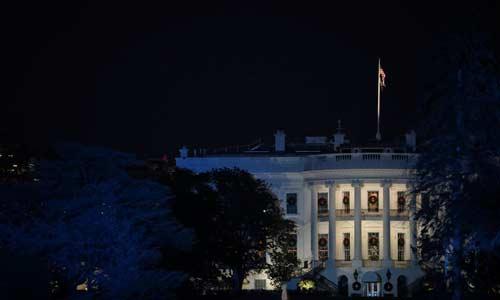The Bush administration's Nuclear Posture Review (NPR), a Congressionally-mandated reexamination of US nuclear policy, proposes a dangerous and destabilizing road map for U.S. nuclear forces. Released to Congress by the Bush administration in January 2002 and partially leaked two months later, the NPR calls for new types of nuclear weapons, proposes new roles for their use, and emphasizes a strengthened commitment to building new nuclear weapons. Given the United States position as the globe's dominant military power, this NPR undermines what must be the preeminent US security goal: preventing the proliferation of nuclear weapons.
The NPR also begins with a fallacy. It states that it "puts the Cold War practices related to planning for strategic forces behind us." Yet the NPR calls for retaining some 2,000 deployed strategic nuclear warheads as well as thousands of additional warheads in storage for rapid redeployment, a position reaffirmed in the treaty signed by Presidents Bush and Putin in May 2002. The only conceivable justification for such an arsenal is to maintain the capability to target Russian nuclear forces. That was the primary role assigned to nuclear weapons during the Cold War, and it remains the primary role in the Bush administration's Nuclear Posture Review. The United States needs to create a profoundly new vision for US nuclear weapons that truly puts the legacy of the Cold War behind us.
A nuclear posture for the next decade
UCS produced a sensible nuclear policy review: Toward True Security: A US Nuclear Posture for the Next Decade. Our review, released in June 2001, proposes making permanent, deep cuts in the nation's nuclear weapons stockpile, reducing the risk of erroneous or mistaken launch by Russia, and making US nuclear weapons policy compatible with its nonproliferation policy.
Our analysis shows that US security would be substantially improved by adopting a nuclear weapons policy for the next five to ten years by which the United States would:
- Declare that the sole purpose of US nuclear weapons is to deter and, if necessary, respond to the use of nuclear weapons by another country.
- Reject rapid-launch options, and change its deployment practices to provide for the launch of US nuclear forces in hours or days rather than minutes.
- Replace its reliance on pre-set targeting plans with the capability to promptly develop a response tailored to the situation if nuclear weapons are used against the United States, its armed forces, or its allies.
- Unilaterally reduce its nuclear arsenal to a total of 1,000 warheads, including deployed, spare, and reserve warheads. To encourage Russia to reciprocate, the United States could make the endpoint of its dismantlement process dependent on Russia's response.
- Promptly and unilaterally retire all US tactical nuclear weapons, dismantling them in a transparent manner. In addition, the United States would take steps to induce Russia to do the same.
- Announce its commitment to further reductions in the number of nuclear weapons, on a negotiated and verified multilateral basis.
- Commit to not resume testing and to ratify the Comprehensive Test Ban Treaty.
- Reaffirm its commitment to pursue nuclear disarmament and present a specific plan for moving toward this goal, in recognition that the universal and verifiable prohibition of nuclear weapons would be in the US national security interest.
- Recognize that deployment of a US missile defense system that Russia or China believed could intercept a significant portion of its survivable long-range forces would trigger reactions by these countries that could result in a net decrease in US security.
The United States should therefore commit to not deploy any missile defense system that would decrease its overall security in this way.
Toward True Security was produced in collaboration with the Federation of American Scientists and the Natural Resources Defense Council.



